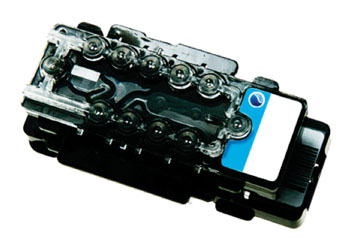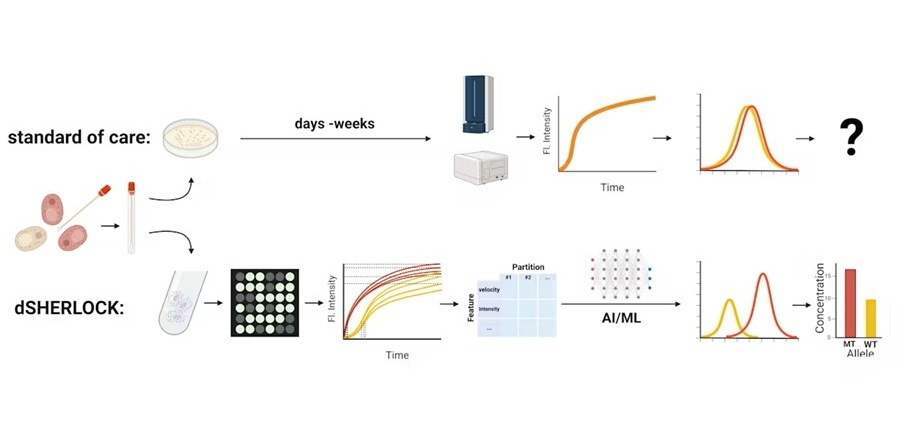Flex Nucleic Acid Test Identifies Respiratory Pathogens
By LabMedica International staff writers
Posted on 22 Sep 2015
The first test of its kind, which features proprietary software, allows the 16 viral and bacterial targets identified by the assay to be reported as a full multiplex panel or in various user-defined subsets.Posted on 22 Sep 2015
The proprietary gold nanoparticle chemistry offers highly sensitive, highly specific molecular diagnostic results through low-cost multiplexing. The system rapidly and accurately detects infectious pathogens and drug resistance markers by targeting conserved genetic regions of a bacterium or virus.

Image: The Verigene Test Cartridge designed for multiplex analysis of one patient sample and used with the Verigene System (Photo courtesy of Nanosphere).
Currently, the multiplexed assays target infections of the blood, respiratory tract and gastrointestinal tract. The information gathered from test results enables clinicians to make informed patient treatment decisions more quickly, which may result in improved patient outcomes, reduced costs, optimized antibiotic therapy and reduced spread of antibiotic resistance.
The Verigene Respiratory Pathogens Flex Nucleic Acid Test (RP Flex) (Nanosphere, Inc.; Northbrook, IL, USA) is for the automated sample-to-result Verigene System and has received US Food and Drug Administration (FDA; Silver Springs, MD, USA) 510(k) clearance. Verigene RP Flex joins Nanosphere's growing menu of infectious disease tests, including: Verigene Gram-Positive and Gram-Negative Blood Culture Tests, which identify bacteria and related antibiotic resistance markers associated with bloodstream infections and sepsis; Verigene Enteric Pathogens Test, which identifies bacteria, viruses, and toxins that cause acute gastroenteritis; Verigene Clostridium difficile Test, which identifies C. difficile, the cause of deadly hospital-acquired diarrhea.
Paul Granato, PhD, Professor Emeritus of Pathology at Upstate Medical University (Syracuse, NY, USA), said, “The demand and need for respiratory pathogen testing varies by season, geography, epidemiology and patient demographics. RP Flex is the first respiratory test that provides labs with the flexibility to choose and pay for only the microbial targets applicable to a given patient, which in turn allows them to practice better test stewardship and reduce healthcare costs.”
Related Links:
Nanosphere, Inc.
US Food and Drug Administration
Upstate Medical University













